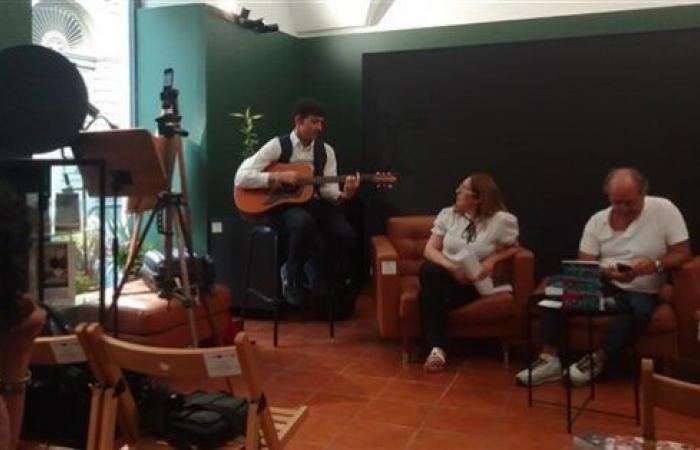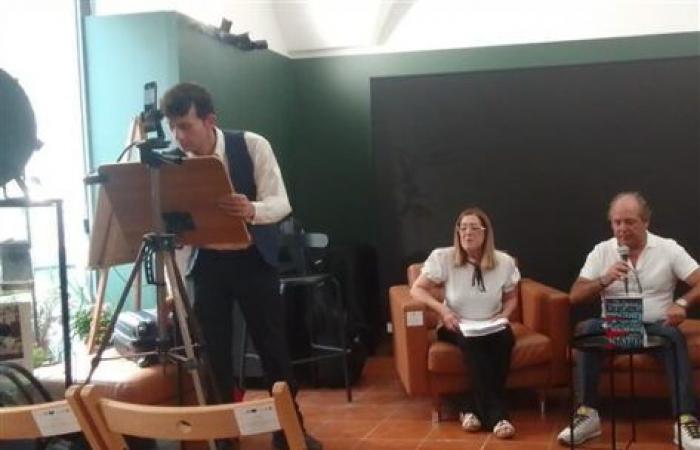The presentation of the thriller “Malavica” by Paolo Sidoti took place at the Pro loco of Acireale.
The moderator of the event, Dr. Rita Vinciguerra highlights its contents. “Malavica is a book that contains within it two other books “Pietra lavaca and Domani. Paolo Sidoti’s writing denotes a strong originality. In fact, “Malavica” is not simply a thriller, but rather a strong mixture, or rather contamination, contamination, as the Latins said, between different literary genres. We range from the aforementioned thriller to the historical novel, to the Bildungsroman up to the psychological narrative; all blended with elements taken from the seventh art and figurative art.
But we don’t want to reveal everything to you. The book is characterized by a singular descriptive force, as an “honest” author is capable of seducing and arousing curiosity. All this, without the pact of trust between author and reader ever breaking down, and in “Malavica” there is a balance between hypothesis and reality”.
The author illustrates his book
“Malavica – illustrates the author Paolo Sidoti – it is a book that cannot be simply classified as a thriller, it would be reductive and banal. Literary genres are an invention of publishing houses, therefore of commerce, and have little to do with the narrative structure of a book. Malavica develops on the story of two couples, and has the city of Catania as its backdrop. Throughout the book, the elephant city is never mentioned, except on the last page. On the other hand, this is also an element of suspense. On the other hand, however, some monuments appear, such as the Ursino Castle, which make the reader understand that we are in Catania”.
“However – continues the author – Malavica is not set only in the Etna capital. Other places appear, ranging from Buenos Aires to Beirut. I would also like to say that Malavica is a choral book, and I will now explain why. In my book, in addition to the psychological and historical description of the characters, which is missing from many novels, making the story boring and lethargic, there is the historical narration of two events very distant in time from each other but which makes the solid scaffolding that holds this book from the first page to the last.
The two events in question are the crusade against Cathars and the refugee camps, or rather concentration camps of Beirut. These two historical facts, at least the first one, given that the second is still contemporary, which, at first glance, may have nothing to do with each other, are in reality very similar. In fact, in Malavica, I want to give voice to the last, as were the Cathars, a heretical group who lived first on charity, poverty, almsgiving. Who rejected the concept of private property and embraced a lifestyle in close contact with nature. They were the forerunners of the Franciscan friars. The Canticle of the Creatures of Saint Francis it is nothing more than a hymn to Catharism.
Last but not least are the refugees in these contemporary concentration camps. The book covers a time span that goes from two hundred and fifty-one AD to two thousand and seventy. Finally, I would like to specify why I called my book that. The title “Malavica” is a neologism which is a union between but, which can mean both mother and sea and, lava to symbolize the Etna volcano”.
The incorrect definition of “choral novel”
Listening to Paolo Sidoti’s presentation of his book we can say that humility is not his strong point. We can reassure readers that despite the incorrect definition of a choral novel, “Malavica” is not “Anna Karenina.” It is not enough to write two parallel passion stories. And it’s not even enough to want to discuss the most varied topics from philosophy to esotericism via cinematographic art, when these are treated superficially, as, once upon a time, sharecroppers were told “A lot per kilo”.
We know: the best is the enemy of the good. The much praised psychological analysis is hard to see. In the two passages read by Dr. Rita Foti, we can see an elementary writing based on the repeated use of parataxis which does nothing but transform psychological introspection into forbidden sentimentalism or, even worse, into psychological sensationalism.
In terms of sensationalism, “Malavica”, as the author himself suggested, could be compared to “The Da Vinci Code”, a great editorial success, despite many inaccuracies here and there and a fundamentally pandering writing.
It must be said that the description of the places is exemplary and worthy of the best French naturalists. However, the strong discrepancy between the time of the story and the time of the story, in addition to destroying the coherence of the events, makes any claim to truth useless.
Giosuè Consoli









